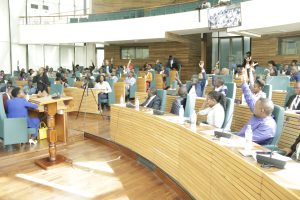
Voting of the East African Youth Parliament Speakers
Faraja Africa Foundation with partners; EALA, European Union, Action Aid, YouLead, Westminster Foundation for Democracy, International Republican Institute-Uganda, EACSOF, Wajibika and Voice of Youth Tanzania organised and mobilised one hundred and twenty young people from the six East African Community member states at the East African Legislative Assembly (EALA) in Arusha, Tanzania for the second East African Youth Parliament sitting also known as the “Vijana Assembly.” The East African Youth Parliament is an invented creative advocacy space institutionalised by EALA where young people get to directly interface and push policy recommendations on topical issues that affect them.
The journey to the Vijana Assembly started last year with the first Assembly sitting as this relevantly done this year with the National Youth Parliament in Uganda and Burundi, and other East African states opting for national dialogues and other pre-YouLead Summit activities. These activities brought together different youth voices from all over East Africa, which were summed up to the national position papers. These papers were then presented at the YouLead Summit 2019 in Arusha for further scrutiny, and the most pressing and crosscutting of the issues therein were included in the order paper of the Vijana Assembly 2019.
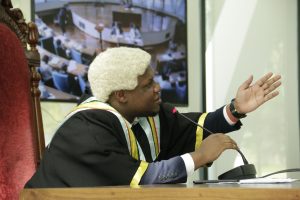
Rwandan Youth Speaker
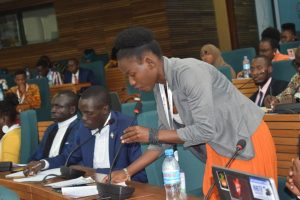
Youth Member moving a motion
This year’s Vijana Assembly was under the theme “Embracing holistic integration” with specific objectives of finding safe space for young people freely debate on critical issues leaving no one behind; youth participation in the integration, youth and governance challenges in the region, climate change and sustainable development, tax justice and entrepreneurship for young people, harmonization of education system in East Africa in line with Agenda 2063 African and East African integration. It is imperative to observe that the Vijana Assembly comprised of young people from the different civil societies, student leaders from different institutions of learning, youth in business, National Youth Councils, and those from different political parties across East Africa.
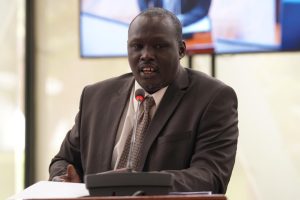
Deputy Clerk Officiating the opening of the Assembly

The Four elected Speakers with the Rt. Hon EALA Speaker at the Center
The Vijana Assembly was opened by the Clerk to the EALA on 14th November and run under the rules of the House. This included complying with the first order of business, that is, swearing in of all members, and thereafter election of Speakers to chair the different sittings. The four Speakers to the Vijana Assembly were elected from Kenya, Burundi, Rwanda and South Sudan; and comprised two ladies and two gentlemen. Uganda and Tanzania obtained the positions of the clerk to the Assembly, whilst handing over the speakership position to the newly elected. It’s important to note that the house overwhelmingly voted one of the speakers as a person with disability (PWD) Rt. Hon Ashuara Michael who is Deaf from Kenya. She chaired the last session with translation for the members. This move was deliberate by the young people, stating that disability does not stop us from collectively progressing hence leaving no one behind, all can lead.
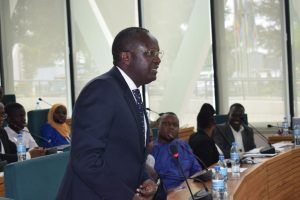
The Speaker of EALA Rt. Martine Ngoga officiating the Closing of the Vijana Assembly
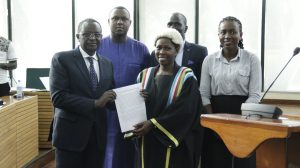
Youth Speakers led by Rt. Hon Ashura handing over the Youth Petition to the Speaker of EALA
The Speaker of the East Africa Parliament, Rt Hon Martin K. Ngoga was present on 15th and participated in the debate, once calling the participants to order over proceeding without introducing themselves on the floor as East Africans from Uganda, Kenya…etc. He congratulated the young people on leaving no one behind in his words saying, “…as young people you have made a statement not only to EALA but the entire world, that disability isn’t an excuse for leaving brilliant minds behind, this has been the most inclusive engagement in these EALA chambers…”
He later officially closed the 2019 Vijana Assembly, where he challenged the young people to fully embrace the integration of East Africa. He noted that he was hopeful that in the near future, a good number of the young people at the Vijana Assembly would be either member of the EALA or even Speaker. He committed that the EALA would ensure that the perspectives of the youth are reflected in the legislative, representative, oversight work, and further pledged to promote youth empowerment.
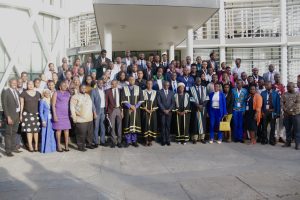
Official Group Photo of the East African Youth Parliament 2019
The four Speakers of the Vijana Assembly led by Rt Hon Ashura Michael then presented a Petition to the EALA Speaker, which contained the resolutions from the two day Second East African Youth Parliament sessions before the Assembly was adjourned sine die by the sitting Speaker, Rt. Hon. Ashura Michael from Kenya at 17:30 hours and the members were invited to a photo shoot with the Rt. Hon Speaker, Martin K. Ngoga.
As Faraja Africa Foundation, with partners, we are committed to building an engaging and sustainable programme to follow up on the petition to EALA and key recommendation actions made by the young people in the following order;
Members to prioritize the ratification and domestication of ACDEG. That Member states allow the use of different currencies across the East African Community member states. That member states prioritize the issue of security in South Sudan. That EALA passes a resolution to have National councils formed in Burundi, Tanzania and South Sudan. That member states expedite the formation of the East African Youth Council. That member states allow the use of different East African countries’ currencies across the region. That education engagements be carried out to harmonise the education system and implement a uniform tuition policy across East Africa. That member states priory the elimination of work permits for citizens of member states and that EALA makes it a law to have a youth representative from each country to the EALA. More information will be shared after our further deliberations with EALA on how these issues can be presented on only on the floor of EALA but also on the East African Community Council of Ministers meeting and above all, the Summit of Presidents.
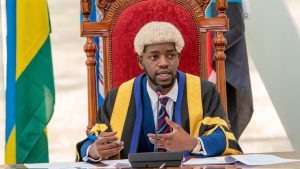









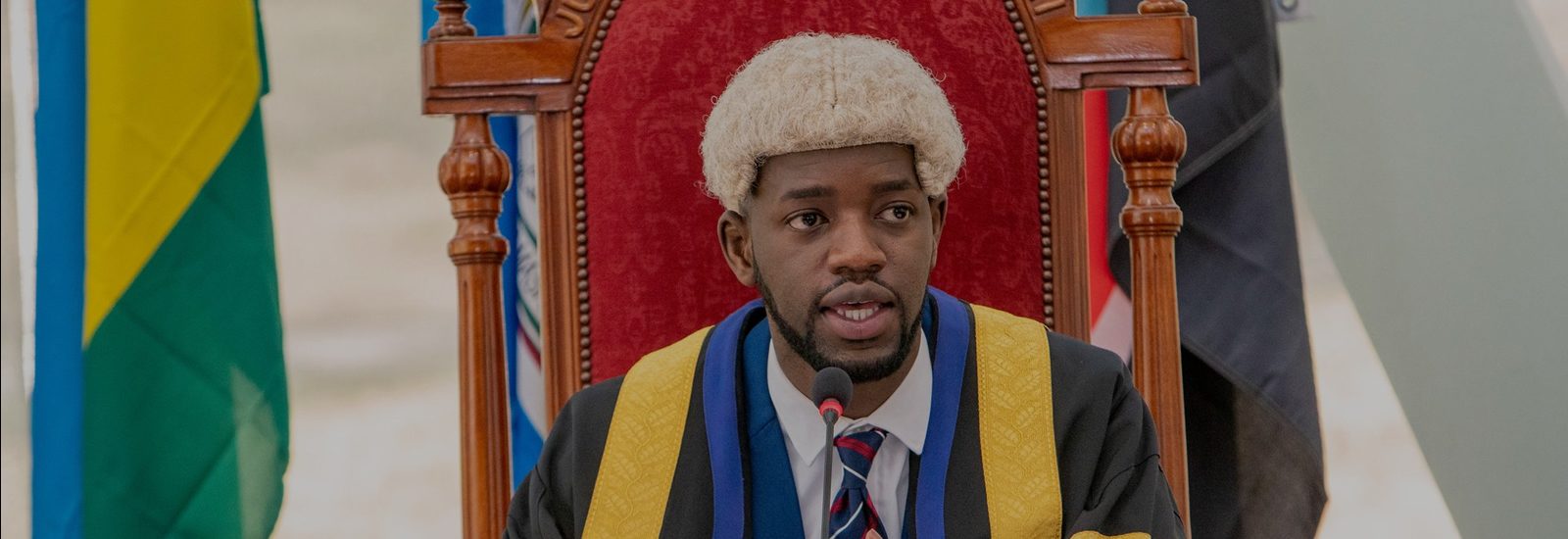
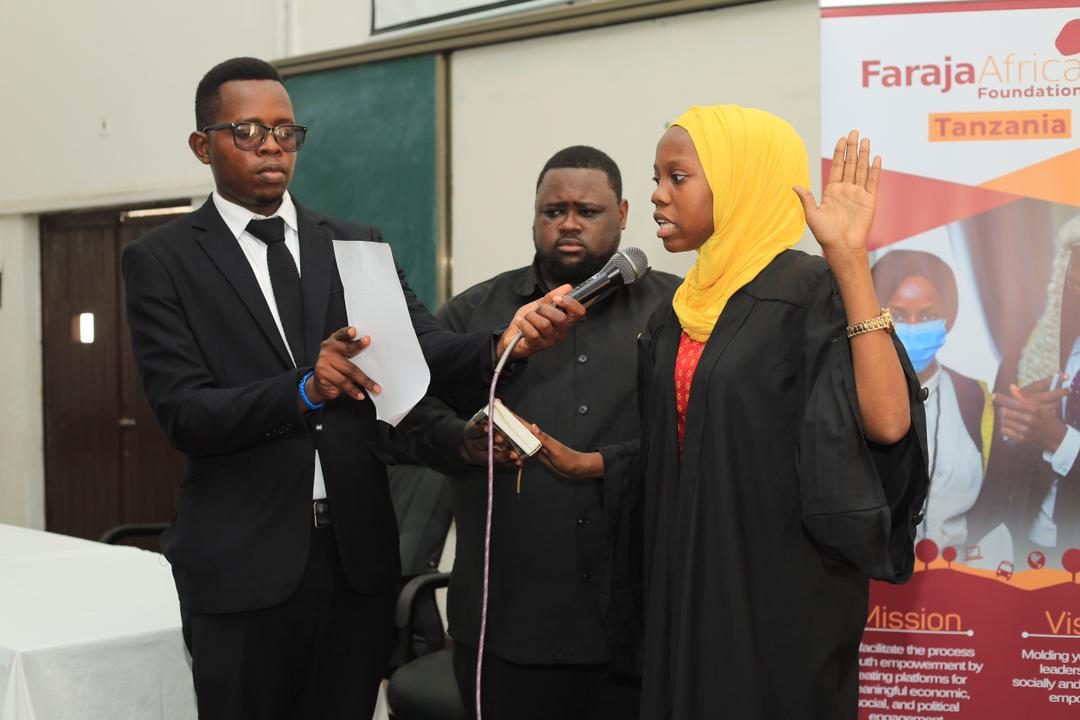
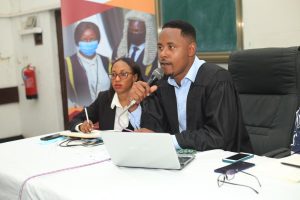
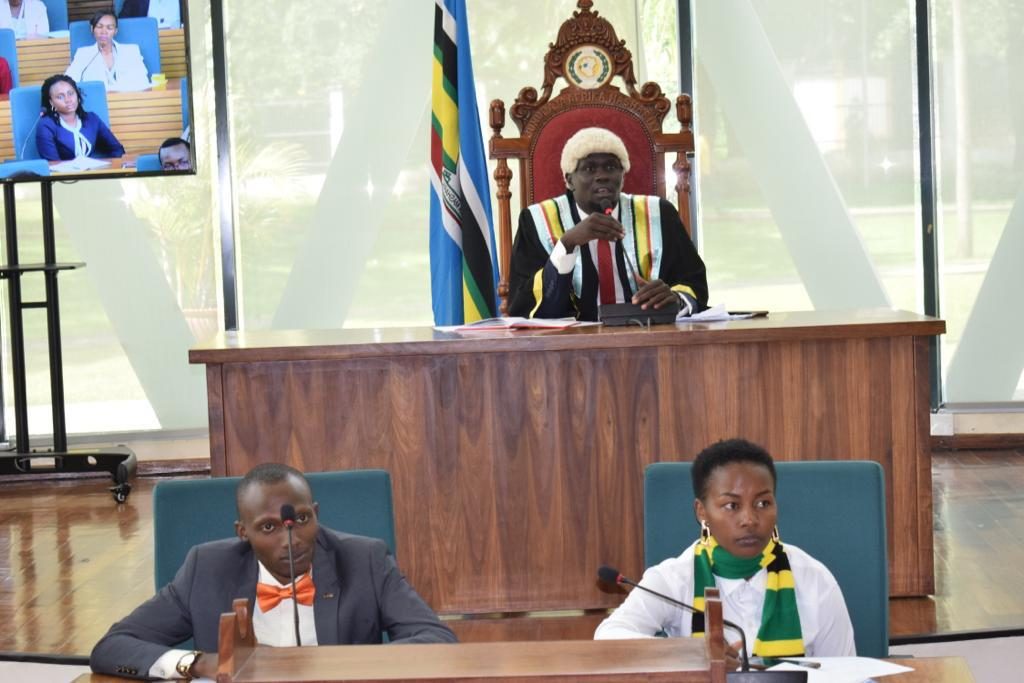
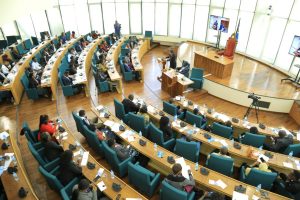 The East African Youth Parliament is a cross-border advocacy flagship program initiated by Faraja Africa Foundation in partnership with, European Union, Action Aid, Westminster Foundation for Democracy, the East African Legislative Assembly and other partners that started in 2018. It aims at having youth voices in the key decision-making processes, right from our national to regional legislative processes, inspiring a coordinated regional governance framework. The East African Youth Parliament not only offers an opportunity to unite the youth in the region but also build their capacity in leadership, policy, and cross-border advocacy. Most importantly give them a platform to engage with key policymakers; Members of Parliament, Ministers, and Heads of State towards making responsive youth/people-centred policies.
The East African Youth Parliament is a cross-border advocacy flagship program initiated by Faraja Africa Foundation in partnership with, European Union, Action Aid, Westminster Foundation for Democracy, the East African Legislative Assembly and other partners that started in 2018. It aims at having youth voices in the key decision-making processes, right from our national to regional legislative processes, inspiring a coordinated regional governance framework. The East African Youth Parliament not only offers an opportunity to unite the youth in the region but also build their capacity in leadership, policy, and cross-border advocacy. Most importantly give them a platform to engage with key policymakers; Members of Parliament, Ministers, and Heads of State towards making responsive youth/people-centred policies. 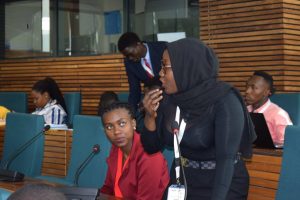 Today, the East African Youth Parliament not only offers an opportunity to unite the youth in the region but also build their capacity in leadership, policy, and cross-border advocacy. Most importantly give them a platform to engage with key policymakers; Members of Parliament, Ministers, and Heads of State towards making responsive youth/people-centred policies. This year, we have yet an opportunity on the 11th -12th November 2021 to convene the 4th East African Youth Parliament at the East Africa Legislative Assembly in Arusha, Tanzania under the theme; “Youth at Crossroads: Quest for descent livelihood amidst the threat of Climate change and the COVID 19 Pandemic.”
Today, the East African Youth Parliament not only offers an opportunity to unite the youth in the region but also build their capacity in leadership, policy, and cross-border advocacy. Most importantly give them a platform to engage with key policymakers; Members of Parliament, Ministers, and Heads of State towards making responsive youth/people-centred policies. This year, we have yet an opportunity on the 11th -12th November 2021 to convene the 4th East African Youth Parliament at the East Africa Legislative Assembly in Arusha, Tanzania under the theme; “Youth at Crossroads: Quest for descent livelihood amidst the threat of Climate change and the COVID 19 Pandemic.”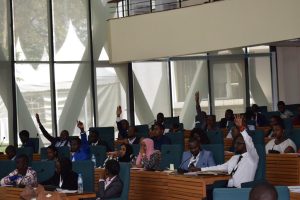 Over 100 young people will be selected to meet physically and 100 digitally deliberate on policy issues, push for ACDEG and social justice issues back in the charter to solve youth challenges directly engaging with the East African Legislative Assembly in the EAC. The two-day sitting will bring national youth councils, student councils, civil society leaders, regional parliaments, ministry reps from the region and EALA. Increasing the advocacy platform for meaningful advocacy, since resolutions and petitions out of the sitting inform discussions at EALA.
Over 100 young people will be selected to meet physically and 100 digitally deliberate on policy issues, push for ACDEG and social justice issues back in the charter to solve youth challenges directly engaging with the East African Legislative Assembly in the EAC. The two-day sitting will bring national youth councils, student councils, civil society leaders, regional parliaments, ministry reps from the region and EALA. Increasing the advocacy platform for meaningful advocacy, since resolutions and petitions out of the sitting inform discussions at EALA.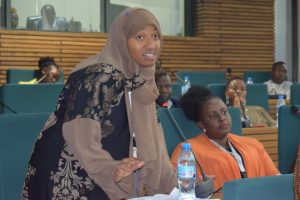
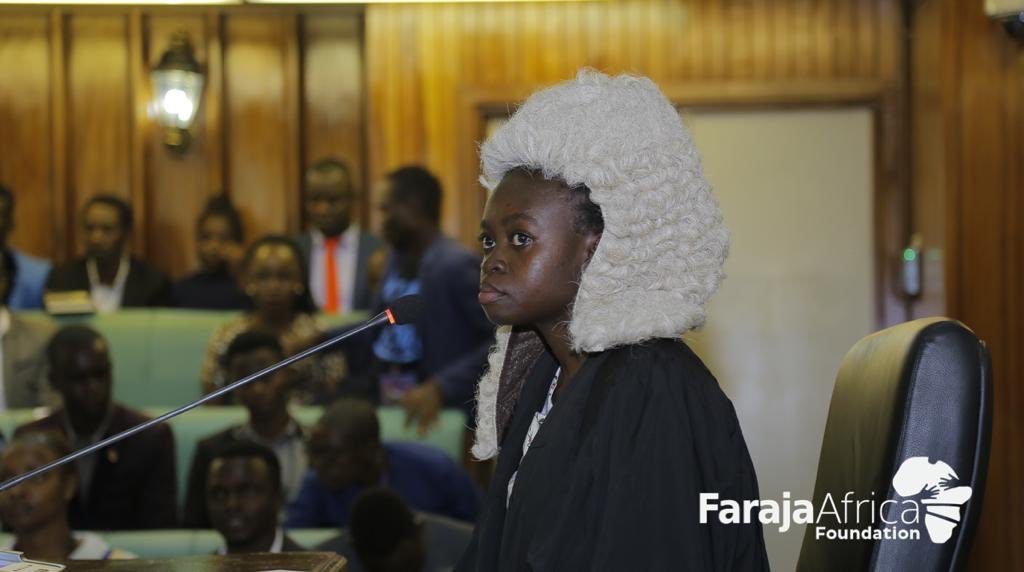

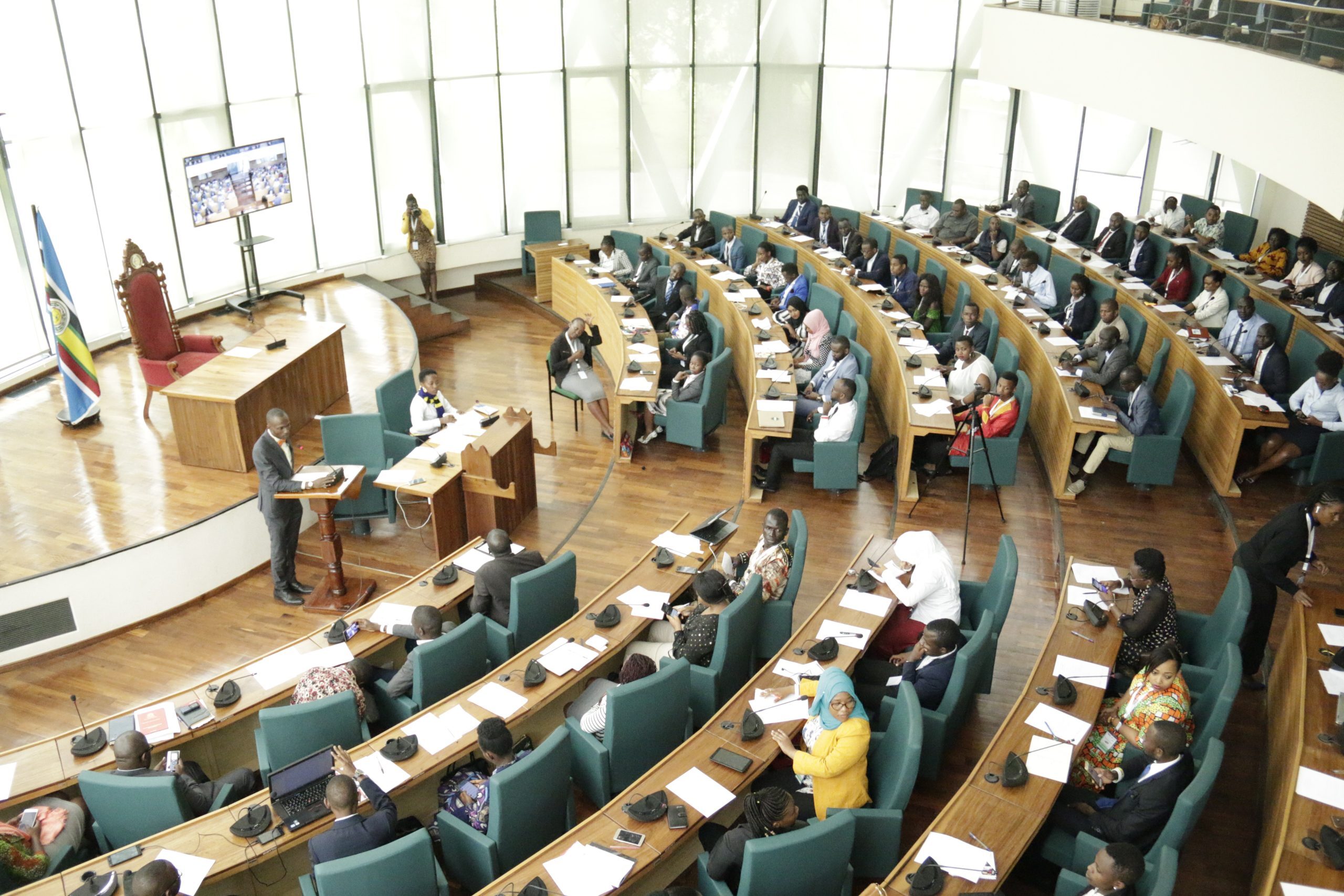








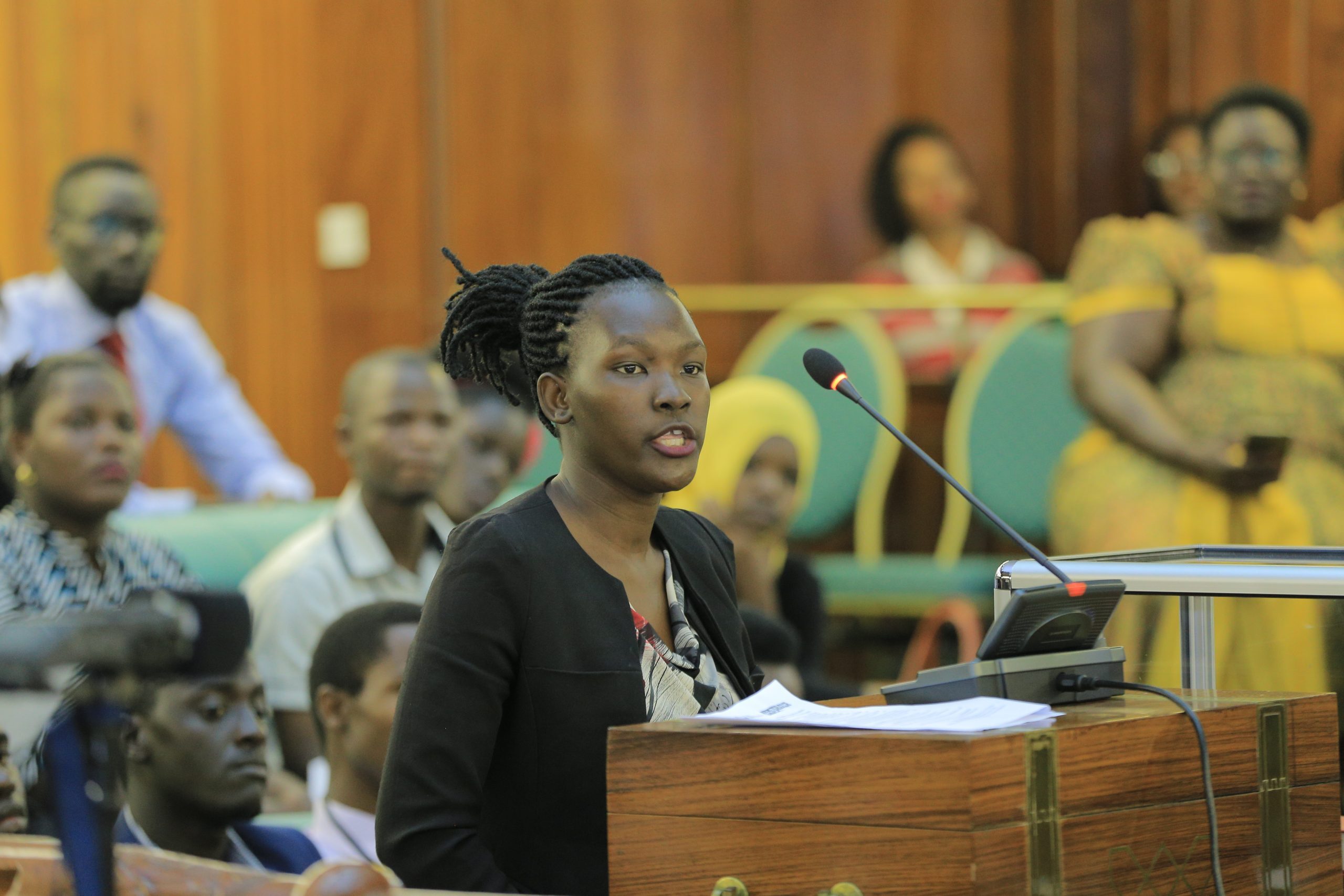
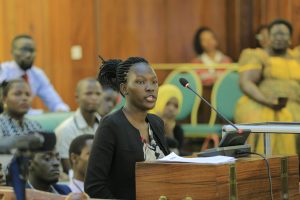 International Youth Day is observed annually on 12 August as adopted by the United Nations under resolution 54/120 in 1999. It is an opportunity for governments and civil society to draw attention to youth issues worldwide. During International Youth Day, concerts, workshops, cultural events, and meetings involving national and local government officials and Youth Organizations take place around the world to commemorate this important day.
International Youth Day is observed annually on 12 August as adopted by the United Nations under resolution 54/120 in 1999. It is an opportunity for governments and civil society to draw attention to youth issues worldwide. During International Youth Day, concerts, workshops, cultural events, and meetings involving national and local government officials and Youth Organizations take place around the world to commemorate this important day.